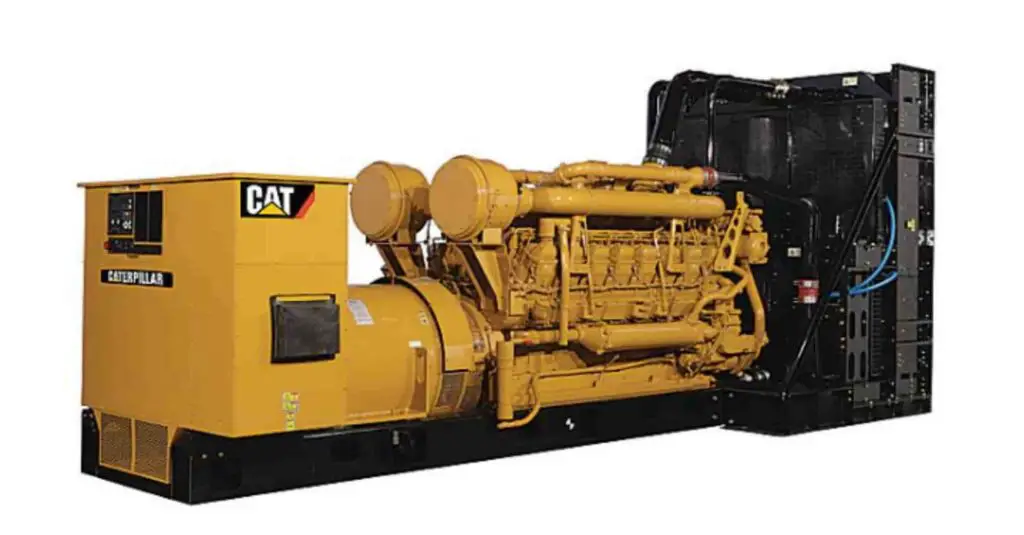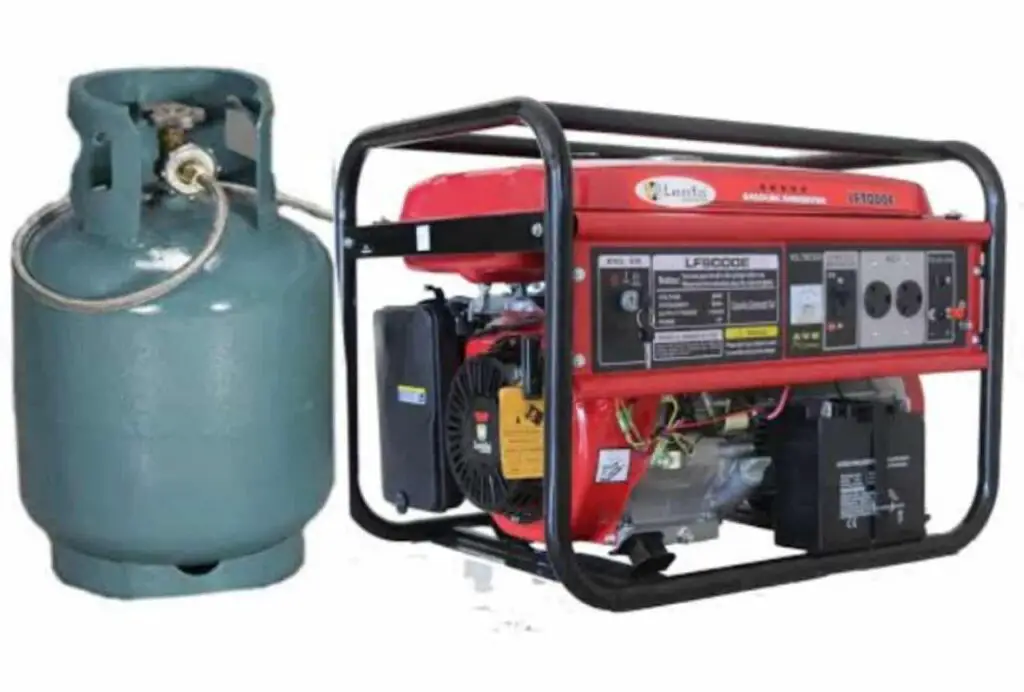As an Amazon Associate, we earn from qualifying purchases. This does not affect the price you pay or the quality of the products you buy. For more information, please read the full affiliate disclosure here.
When buying a generator, the choice of fuel type plays an integral role in its efficacy, cost, safety, and environmental impact.
Hence, understanding these roles of generator fuel type is what makes us at Generator Hacks to explore the three major generator fuel types in the market today, which include:
- Diesel
- Propane
- And Natural Gas.
A lack of understanding of fuel types before buying a generator has cost many generator owners and business owners a loss.
Trouble with your generator? Get expert personalized troubleshooting tips tailored for you alone directly to your email. Contact us now for reliable support and practical solutions. Let’s fix it together – reach out today!
In this sense, they spend more on fuel to run their generator for a specific period of time. This has made people divert from the popular fuel type “gasoline” to natural gas because of its advantages.
When writing this article, more than 50% of our customers wanted to convert their gasoline generators to natural gas due to the scarcity of gasoline and increased fuel costs.
Apart from the fuel cost, there’s also a need for environmental impact and prevention of carbon monoxide.
Diesel, though often associated with solid reliability and economical operation, raises crucial debates about environmental impact and maintenance.
While lauded for its relatively lower emissions, propane raises concerns about storage safety and consumption rate.
On the other hand, Natural Gas, despite its potential for cost-friendliness and efficient operation, introduces challenges concerning fuel line requirements and measure of output energy.
So, to make a well-informed decision, you must know about these three major fuel types and the pros and cons of using any of them for your generator.
Diesel Fuel Generators

Diesel fuel generators are famous for their overall efficiency and cost-effectiveness.
Diesel, as a fuel type, inherently produces a higher energy per liter compared to other fuel types, such as gasoline or natural gas.
This higher energy yield translates into greater power output, making diesel generators ideal for large-scale or demanding operations.
The fuel’s higher energy content also contributes to the generators’ long lifespans and high-performance metrics, characterizing diesel generators as reliable and efficient power sources.
IMPORTANT READ:- FAQs: What Diesel Generator is Best For Home Use?
Pros And Cons of Diesel Generators
The efficiency of diesel generators comes with both advantages and drawbacks.
One of their main advantages is their long-term cost-effectiveness.
While diesel generators commonly have a higher upfront cost than their gasoline or propane counterparts.
The longevity and lower maintenance requirements of diesel engines can lead to lower total operating costs over time.
On the downside, diesel fuel availability can sometimes be a constraint, especially in remote or disaster-affected locations.
IMPORTANT READ:- Diesel Generator vs Gasoline Generator: The Differences
Environmental Impact and Maintenance of Diesel Generators
While diesel generators have traditionally been known for relatively high emissions, recent technological strides and increased environmental regulations are prompting manufacturers to produce cleaner, low-emission diesel alternatives. This represents a significant shift in mitigating the ecological impact.
Diesel generators are also lauded for their infrequent maintenance intervals compared to gasoline-powered versions. However, the associated costs can be more significant.
The complexity and sturdiness of diesel engines mandate technically skilled personnel for their upkeep and repair.
In addition, diesel fuel requires carefully managed storage to evade degradation or contamination, adding another layer to their upkeep.
However, many users consider these hurdles worth the unparalleled reliability and longevity diesel generators tend to provide
Propane Fuel Generators
Propane generators have garnered a reputation for their impressive efficiency and generally affordable running costs.
As a cleaner-burning fuel, propane places less stress on the generator’s engine, potentially leading to extended equipment life.
While compact, these generators boast a high-energy output, making them highly effective power sources.
Although propane prices vary, it is typically less costly than gasoline, especially when purchased in significant amounts.
An added advantage of propane is its indefinite shelf-life, rendering it an ideal choice for backup generators that see less frequent use.
This intrinsic propane capability means you’re always prepared for unexpected power outages, even if your generator has yet to be used.
ALSO CHECK:- How to Pick the Best Generator for Your Business and Home
Propane Fuel Generators Environmental Impact and Safety
The environmental impact of propane generators is less than that of diesel or gasoline models.
Burning propane releases fewer pollutants and greenhouse gasses, which makes it a cleaner choice.
Moreover, when propane is burned, it doesn’t produce harmful toxins, which makes it safer for both people and the environment.
Regarding storage and safety, propane is often stored in tanks, making it less likely to spill than liquid fuels.
However, care must still be taken, as propane is flammable and can cause an explosion if improperly handled.
Its consumption rate tends to be higher than other fuels, which could require frequent refilling on heavy usage.
Propane Fuel Generators: Pros and Cons
With multiple options for generator fuels, propane is quite enticing due to its lower emissions, longevity, and cost-saving potential over time.
These benefits, however, come with a few considerations. For instance, in particularly low temperatures, propane may not vaporize properly, making the generator more challenging to start and operate.
Additionally, while the propane cost frequently undercuts gasoline, the initial investment in a propane generator can surpass that of a gasoline generator.
Yet, for many, propane’s long-term benefits and cost savings far outweigh these minor drawbacks.
Natural Gas Generators

Transitioning into another widely employed fuel type for generators, natural gas stands out as a competitive, readily available, and cost-effective alternative.
It derives from fossil fuels extracted from the earth’s crust. It is abundant in many regions, attributed to its cost efficiency.
Regarding performance, natural gas generators excel by quickly ramping up to operating power levels and offering a stable output.
However, the advantages should not eclipse the environmental implications that accompany the use of natural gas.
Its combustion process results in the emission of greenhouse gasses, including carbon dioxide and methane, the latter of which has an exceptionally high impact on global warming. That’s why most generators using natural gas fuel come with a Carbon monoxide sensor.
Moreover, methane leaks from gas wells and pipelines can intensify this impact. Therefore, while natural gas has a cleaner reputation than coal or oil, it contributes to air pollution and climate change.
The fuel line requirements are necessary to consider in the natural gas generator equation.
Natural gas generators require a gas supply line connection, which can be part of a more extensive gas supply infrastructure in urban areas or a dedicated line from a propane tank in more isolated locations.
Availability, installation logistics, and potential future issues, such as line damage or leaks, are all part of considering a natural gas generator.
Yet, once correctly installed and maintained, natural gas supply lines can provide a steady and sure fuel source for your generator.
It’s essential to evaluate the benefits and drawbacks of using natural gas for generators: its efficiency, cost-effectiveness, environmental impact, and requirement of a dedicated fuel line.
IMPORTANT READ:- How to Ensure a Successful Backup Generator Installation: Complete Guide
Final Thought
Understanding the impacts of the fuel type can help you make an informed decision when choosing a generator.
Each of the discussed fuel types – Diesel, Propane, and Natural Gas – presents its own set of advantages and drawbacks.
You can optimize generator efficiency, environmental considerations, and cost-effectiveness by comparing these factors.
If you’re still struggling to choose the right generator fuel type, don’t hesitate to get in touch with us.
Share


